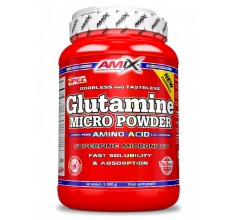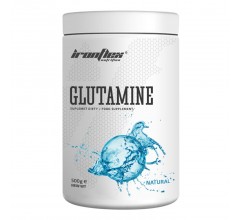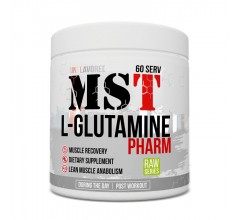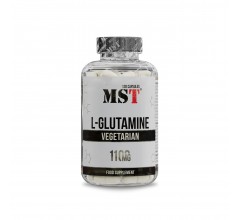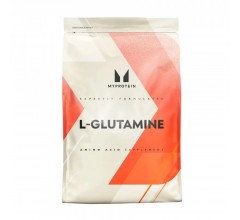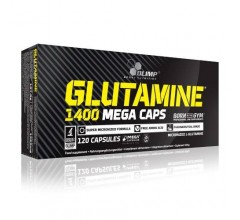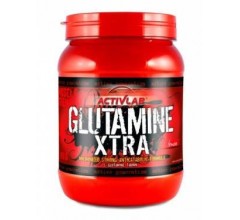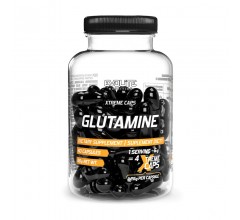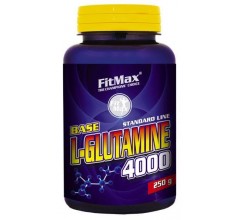Glutamine is the most abundant amino acid in the body (the building block of protein) and is involved in as many metabolic processes as any other amino acid. The special role of glutamine is that it serves as a fuel source for the cells lining the intestines, and is also necessary for the proper functioning of leukocytes. White blood cells and other rapidly dividing cells use a lot of glutamine, which is why it is so important for them. Without glutamine, these cells would not be able to divide normally.
Traditional medicine recognizes the importance of glutamine. Glutamine is an extremely important component of parenteral nutritional formula used in hospitals because, in double-blind studies, glutamine significantly improves survival in critically ill patients.
Glutamine is the most abundant amino acid in the blood and in skeletal muscle free amino acid stores. Glutamine stimulates synthesis, inhibits protein degradation and is a source of energy for muscle cell division. Glutamine is also a precursor for the synthesis of amino acids, proteins, nucleotides, glutathione and other biologically important molecules. Glutamine has an anabolic effect on skeletal muscle.
Studies have shown that taking glutamine supplements stimulates the immune system and helps the body fight infection. This effect of glutamine has been best demonstrated in the case of endurance athletes (extreme sports stress suppresses the immune system) and seriously ill people. It is not known whether glutamine boosts immunity in healthy individuals.
Glutamine comes in capsule, tablet, and powder form. A typical dosage of glutamine is 3-5 grams per day. Alternative recommendations are 20-30 grams of whey protein concentrate.
No side effects have been reported when taken at dosages up to 21 grams per day.
- VIP: 308грн.
- GOLD: 318грн.
- SILVER: 325грн.
